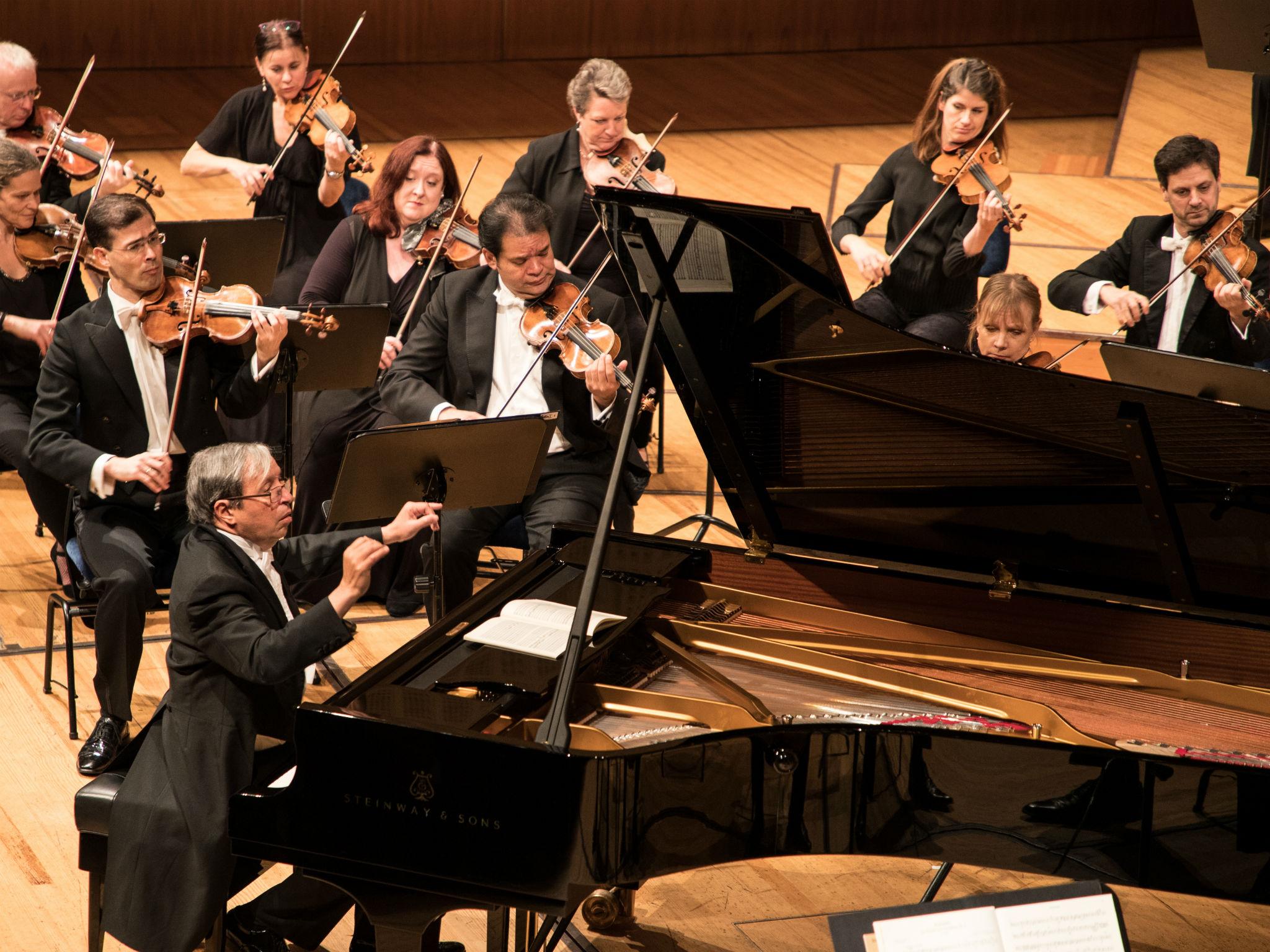Murray Perahia/ Academy of St Martin in the Fields, Barbican, London, review: There was authority in his beat, and warmth in his attack
The world-leading pianist, Murray Perahia performed with vigour at London’s Barbican with the Academy of St Martin in the Fields, as part of his long-running Beethoven series, at London's Barbican

‘I do not pass it off as one of my best,’ said Beethoven modestly of his Piano Concerto No 2 in B flat to his publisher; he’d tinkered with it for ten years, in four separate versions. That may have been the period when Beethoven was wrenching himself free of Mozart’s influence, but the way Murray Perahia played this work – leading the Academy of St Martin in the Fields from the keyboard – it emerged with its particular perfection intact.
There was authority in his beat, and warmth in his attack, as piano and orchestra developed their dialogue in the opening Allegro con brio, while the keyboard recitative in the Adagio – one of Beethoven’s most expansively eloquent early slow movements – had lovely poise; the boisterousness of the concluding Rondo was kept within the bounds of eighteenth-century decorum.
As part of Perahia’s long-running Beethoven series at the Barbican, this concert ended with the most gracefully-turned account of the fourth piano concerto I have heard in years. Even in the opening repeated solo chords his playing was full-blooded, and his take on the dialogue between piano and orchestra in the mysterious Andante had none of the religious overtones with which pianists often seek to present it. This was less an encounter between heaven and hell than a rapt communal rumination.
Join our commenting forum
Join thought-provoking conversations, follow other Independent readers and see their replies
Comments
Bookmark popover
Removed from bookmarks